Everybody needs a good night’s sleep to function properly during the day. That’s just a fact.
Some people will fall asleep in 3 seconds after lying down. Unfortunately, that’s not how it goes for everyone.
There are a lot of people struggling with falling asleep and having a good quality sleep during the night.
Check out this article to see if there are things you can change about your sleeping habits to improve your sleep and feel more energized during the day!
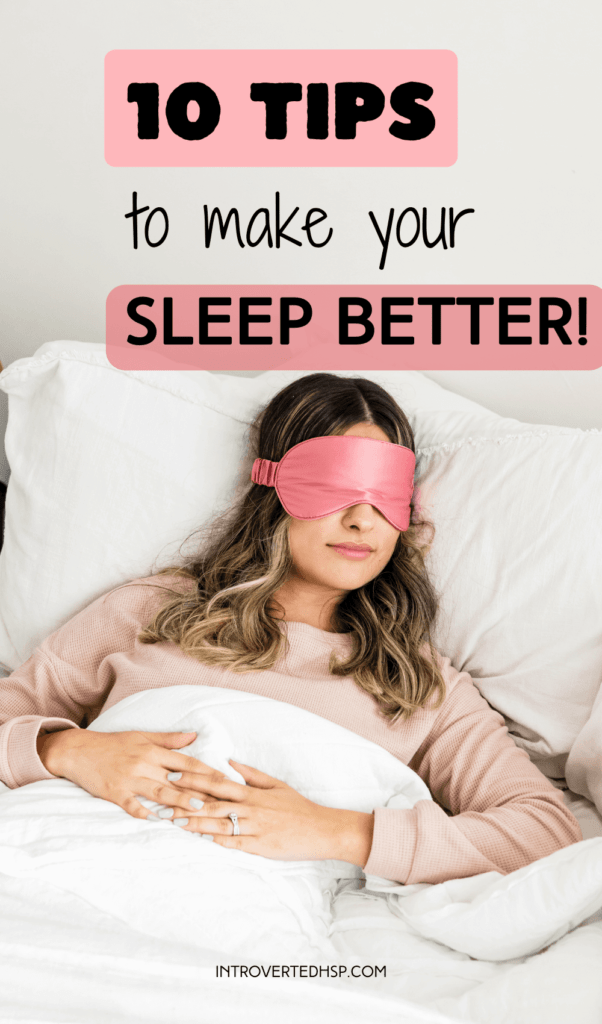
This post may contain affiliate links, which means if you make a purchase through these links, I may receive a small commission at no extra cost to you. As an Amazon Associate I earn from qualifying purchases. Please read my disclosure for more info.
10 Easy Tips to Sleep Like a Baby and Have a Good Night’s Sleep
1. Make your bedroom dark
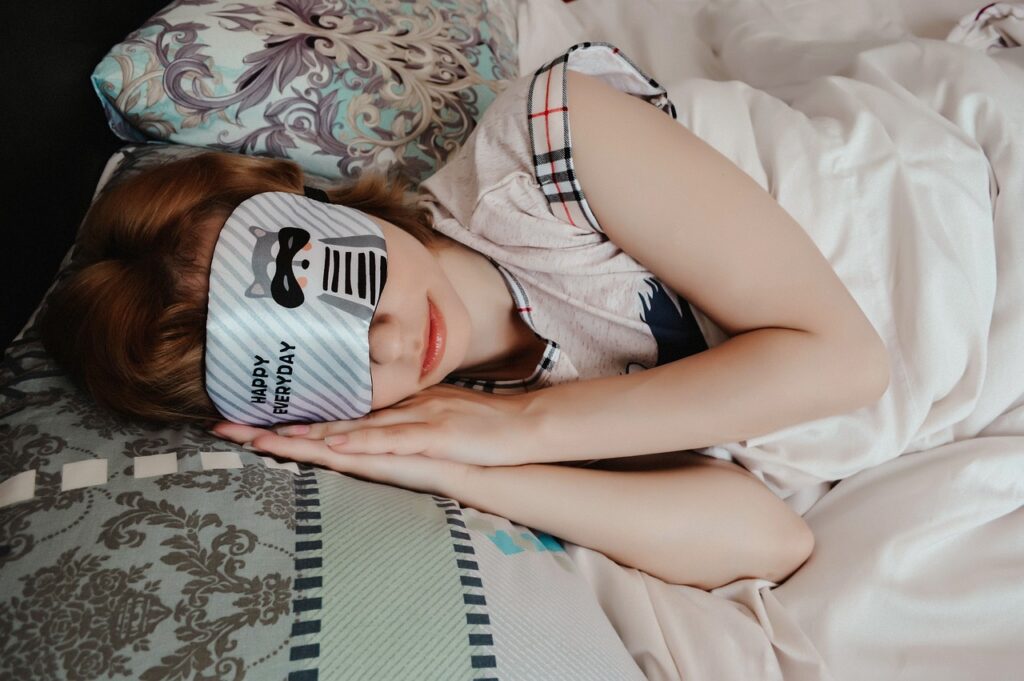
When the night falls, everything gets dark outside. But only when you’re in a place where there is nothing but nature.
Streetlights can ruin this darkness when you’re living in a house or apartment, therefore it is important to reduce the light coming into your room as much as possible.
Buy and install draperies or blinds blocking all the light coming from outside your windows. Everyone has a different sensitivity to light and you should know your sensitivity.
To block the light in your own bedroom is easy as you are in full control, but when you are sleeping elsewhere on a holiday, for example, you can bring a sleep mask to block light coming into your guest bedroom.
Pick a sleep mask that you can tolerate on your eyes, as any uncomfortable feelings can keep you from your sleep as well. This sleep eye mask looks very comfortable and good at blocking the light.
2. Turn off every noise that disturbs you
Just like light in the previous point, noise can disturb you from falling asleep.
When there is a lot of noise in your neighborhood or your house, it can be very difficult to get some sleep. Good isolation in your home can help you keep the neighbors’ sounds out, but when you’re sleeping next to someone who is snoring, you have different problems.
Earplugs can be a solution for people who can tolerate them in their ears all night. I always worry that I won’t wake up because I won’t hear my alarm clock as loud.
There is a solution for that of course, I wear a Garmin watch that vibrates around my wrist when it’s time to wake up so I don’t hear an alarm at all. Also very friendly for your family as it doesn’t wake them up before their alarm goes off. I would definitely recommend it!
You can also try a white noise machine to block out noises from outside. It should really help you to get a good night’s sleep.
3. Create a bedtime routine
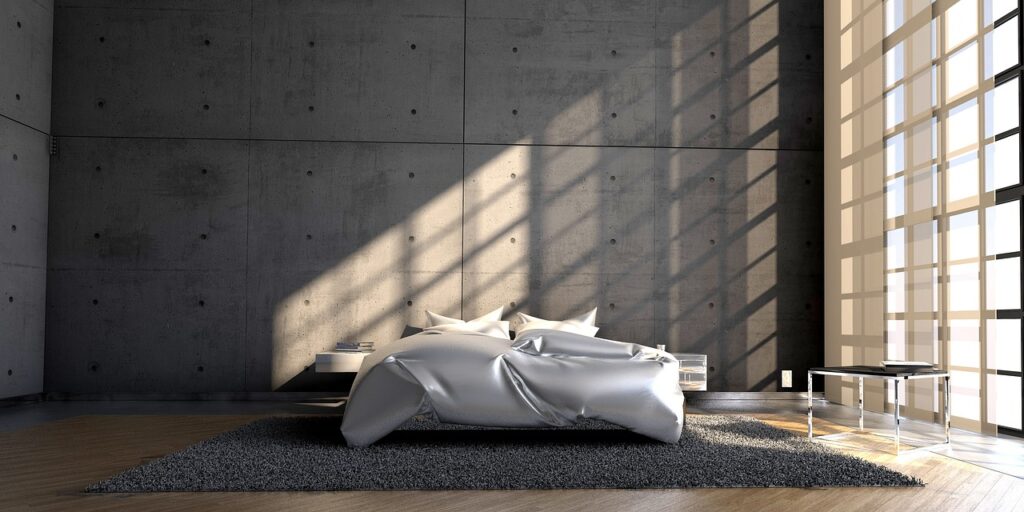
Establishing a bedtime routine will let your brain know that you are going to sleep anytime now. When you act the same every night, this will help you to fall asleep faster.
I will give you an example of a bedtime routine:
- Take a shower or bath (or just wash your face)
- Put on your pajamas
- Brush and floss your teeth
- Get settled in your bed
- Read a book or write in your journal
- Turn off the lights and go to sleep
Your brain loves routines, it makes you spend less energy because you don’t have to make decisions all the time.
Create a bedtime routine that works for you and your family.
4. Stop drinking caffeine 8 hours before you go to sleep

When you go to sleep at 10 p.m., you should drink your last caffeinated beverage before 2 p.m. in the afternoon.
For the highly sensitive persons among us, it can even be longer for you! For some HSPs, it’s best to drink your last caffeinated beverage at noon and not drink too much caffeine during the day.
Beware of all the drinks that contain caffeine! I’m not just talking about coffee or energy drinks.
Keep away from these drinks and foods! later in the day:
- Coffee
- Black and Green tea
- Soft drinks
- Energy drinks
- Cocoa beans and chocolate
- Guarana (in energy drinks, soft drinks, and supplements)
When you avoid these drinks and foods, along with avoiding alcohol before bed, your sleep won’t suffer from what you are drinking!
5. Have consistency in your sleeping and waking times
You will have more chance of having a good night’s sleep when you wake up and go to bed at the same time every day. This teaches your body when it’s time to get sleepy so it will help you to fall asleep faster.
Most people have good consistency of sleeping times during their work week, but when the weekend arrives, their sleeping times get all messed up.
You really should try to keep the weekly times close to your weekend times so your sleeping schedule doesn’t go to hell.
When you have to get up for work, you don’t have a choice of your waking time and I get that you want to sleep in during the weekends, but try to make the difference as little as possible, a few hours max.
6. Journal before going to sleep

Writing down your thoughts in a journal can help you clear your mind. This is a great tip for overthinkers.
Write in a notebook about how you’ve spent your day, what good things have happened, what you are worried about, etc. When you get all your worries out of your head by writing them down, it will be easier to get a good night’s sleep.
You could also keep a gratitude journal to practice gratitude before you go to bed. Dedicate a notebook to write 3 to 5 things you’re grateful for that have happened that day. When you are feeling a bit down, you can always read what you’ve written in the past week to cheer you up.
7. Have a bath or shower to relax
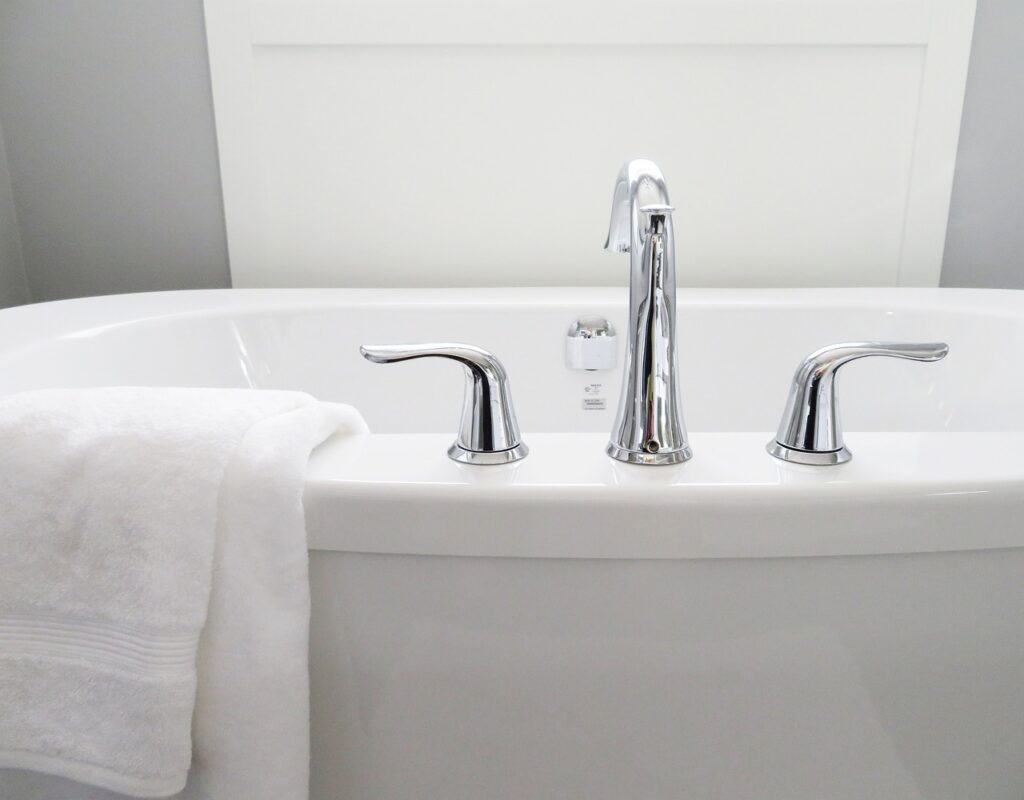
You can make having a bath or a shower part of your nighttime routine, it’s a great ritual.
It is a good way to relax your body and your mind. When you use hot temperatures, it will relax all the muscles in your body.
When you are taking a bath, you can make it as relaxing as you want by taking your time, putting out some candles, watching a show, or reading a book.
8. Switch off electronic devices

When I go to bed, I plug in my phone to recharge and put it away for the night. My phone is always in non-disturb mode so this stops the screen from turning on all the time.
A lot of electronic devices these days have a night-shift mode. When you turn this on, the blue light from your screens becomes more yellow. This is a great feature to have because then you can look at the screen without being subjected to the same amount of blue light it emits normally.
Be aware that the night shift won’t block all the blue light so it’s still best to not look at electronic devices before you go to sleep. When blue light is reduced, it triggers the production of melatonin, the hormone you need to get sleepy.
If you are watching electronic screens the entire day, it might be good for you to consider trying a pair of blue light glasses. These glasses will block a great percentage of the blue light coming through.
9. Consider taking a melatonin supplement
Melatonin is a sleep hormone that your body produces when it gets darker at night. So when you are being exposed to too much light before going to sleep, the lack of it will keep you awake.
For most people, the body produces enough melatonin to get a good night’s sleep.
Unfortunately for some people, this amount of melatonin does not seem to be as much as required. For these people, it can be beneficial to take a melatonin supplement before going to bed.
The melatonin supplement should help you fall asleep faster and would also be helpful with jet lag.
10. Read a book
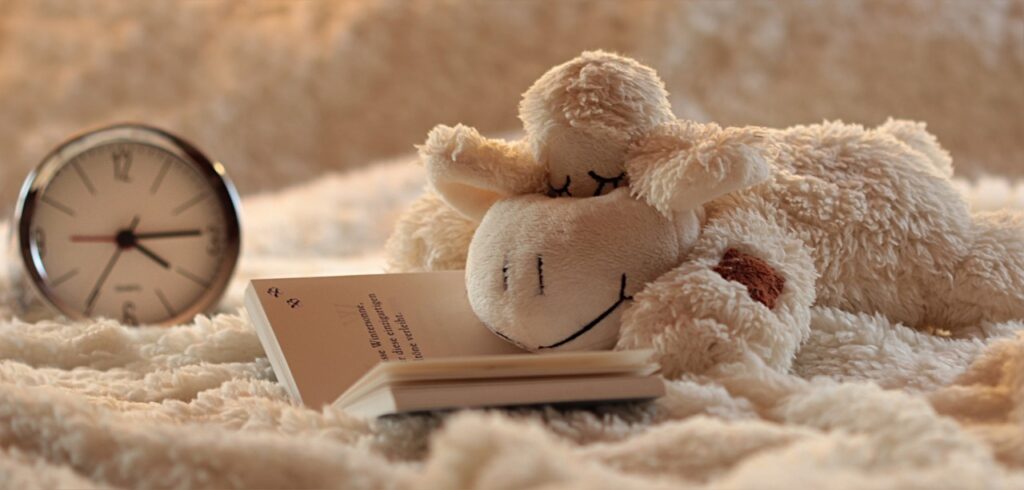
Reading a book is sleep-inducing if you ask me but some people might keep reading and staying awake because the story is so engaging. Maybe those people drank some coffee right before going to bed ;).
It is definitely better to read a book than to watch a show before bed because when reading, you aren’t exposed to the awakening blue light.
It’s a way of winding down after a long day and relaxing while sometimes still gaining some knowledge. Reading can also reduce your stress levels but make sure to grab an interesting book so you won’t be tempted to scroll on your phone instead.
Find out what works for you to get a good night’s sleep
All of these tips can help you get a good night’s sleep. Try them and see if your sleep quality and quantity improve.
HSPs often have a harder time falling asleep and sleeping during the night so they will benefit even more from these tips! As an HSP, you probably have to be more strict about some of them because your nervous system is more sensitive to stimuli.
If you have some more tips, feel free to share them in the comments!
Sleep tight and sweet dreams to you! Have a good night’s sleep!
